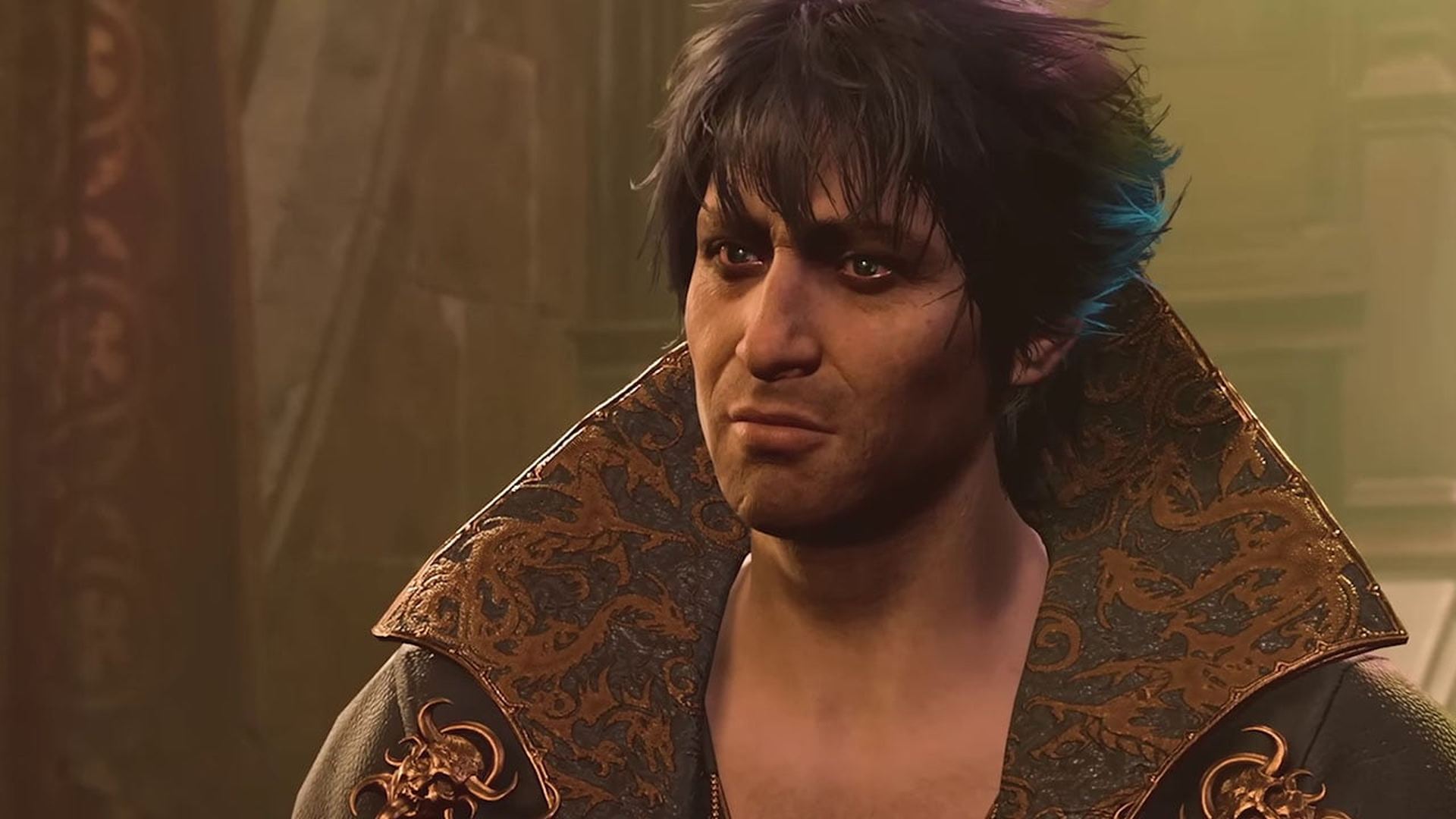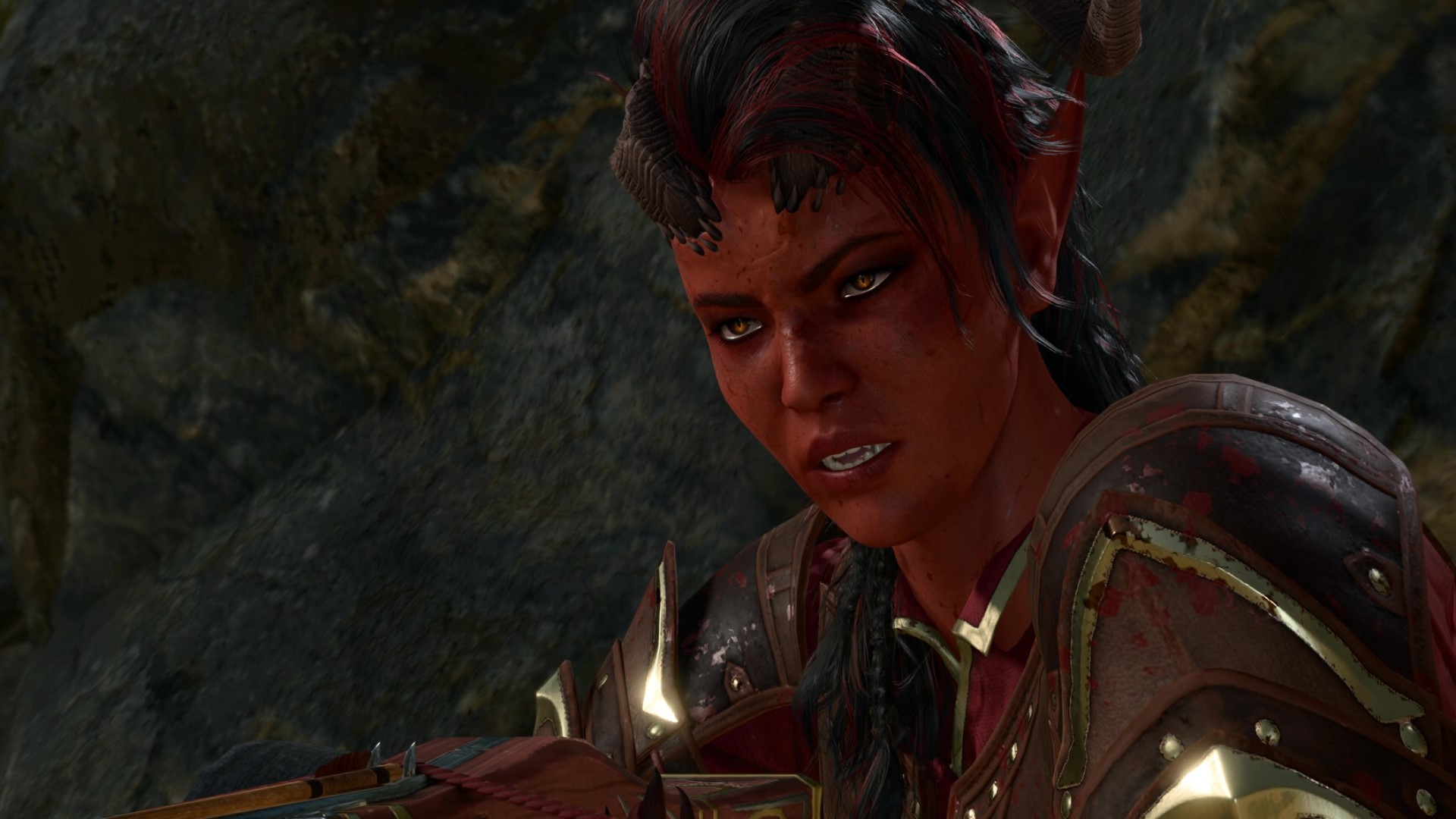The truth behind one of Baldur's Gate 3's most hotly-debated lines might have been found lurking in a 28-year-old D&D source book

The answer to one of the most hotly-debated lines in Baldur's Gate 3 might have been found lurking in a decades-old D&D source book.
This article contains late-game spoilers for Baldur's Gate 3.
If you've made it to the end of Act 2 of Baldur's Gate 3, you'll have met Enver Gortash. The archduke of the city is up to some nefarious deeds, and you get your first peek at him beneath Moonrise Tower, shortly before you head to Baldur's Gate itself. For many players, that first peek was a source of some confusion.
See, you're technically first introduced to Gortash in Act 1, when you're presented with a vision of the Absolute's chosen. You don't get to see them as anything more than a silhouette, but we do get descriptions of them: the central figure is "an armored male elf," but the figure on the left is described as "a handsome younger man with a quick easy smile."
The thing is, ever since the community started to get a proper look at Gortash, many of them have found that description to be somewhat lacking. There's the 'Gortash facelift' mod that aims to improve his appearance, the posts describing him as a catfish or simply asking why on earth anyone thinks he's actually attractive, and the comparisons to edgy frontmen of overly emotional bands. There's clearly something there, but 'handsome' does not appear to be the descriptor the community has settled on, and as a result that initial introduction has been heavily queried in the months since Baldur's Gate 3's release. Finally, however, one player might have found the source of all that confusion.

Earlier this week, a post on the Baldur's Gate 3 subreddit offered an "explanation for Gortash being described as handsome and young." That post highlights a description of Bane's Avatar:
Bane preferred never to be seen in person and hence almost never sent a pure avatar to the Realms. He did possess mortals from time to time to serve as his ersatz avatars, preferring young and good-looking men of slim build, cultured tastes, wealth, and power - often bored young noblemen. Any person Bane possessed quickly assumed the appearance of a handsome, black-haired man of oily looks and a derisive, even cruel, manner.
Weekly digests, tales from the communities you love, and more
Putting 'handsome' to one side, a cultured, black-haired nobleman of oily looks and a slim build, with a derisive, cruel manner certainly seems like a pretty accurate description of Gortash. Given he acts throughout Act 3 as the Chosen of Bane, it's definitely no great stretch to imagine that he could have been possessed, or at least influenced, by his divinity, hence his appearance. I'd also argue that that could mean he was a little better-looking in the past, and that could be the source of his description in Act 1.
Interestingly enough, while the Baldur's Gate 3 community has been puzzling over that line for months, this potential answer to Gortash's appearance has been part of D&D canon for nearly three decades.
A quick search brought me to another Reddit thread which notes that this description of Bane's Avatar comes from Faiths & Avatars, a D&D 2E sourcebook detailing the various divinities of the Faerunian pantheon of gods and goddesses. This in turn brought me to a PDF of that book. The book's full description of Bane's Avatar notably adds:
Bane could cast spells from any sphere or school, but could not mend or create anything material or living. He could raise recently slain beings, however, and evoke solid but temporary spell effects such as the whirling blades of a blade barrier.
First published in 1996 and having recently celebrated its 28th anniversary, it suggests that Gortash's description is no secret, and is in fact a long-running trait of the character that defines the ill-fated archduke. Who knows, maybe 3.5E holds the answer to why Gale, a man long-consigned to libraries, is so incredibly ripped.

I'm GamesRadar's Managing Editor for news, shaping the news strategy across the team. I started my journalistic career while getting my degree in English Literature at the University of Warwick, where I also worked as Games Editor on the student newspaper, The Boar. Since then, I've run the news sections at PCGamesN and Kotaku UK, and also regularly contributed to PC Gamer. As you might be able to tell, PC is my platform of choice, so you can regularly find me playing League of Legends or Steam's latest indie hit.


